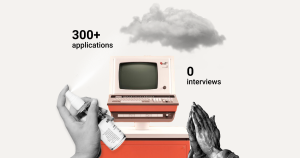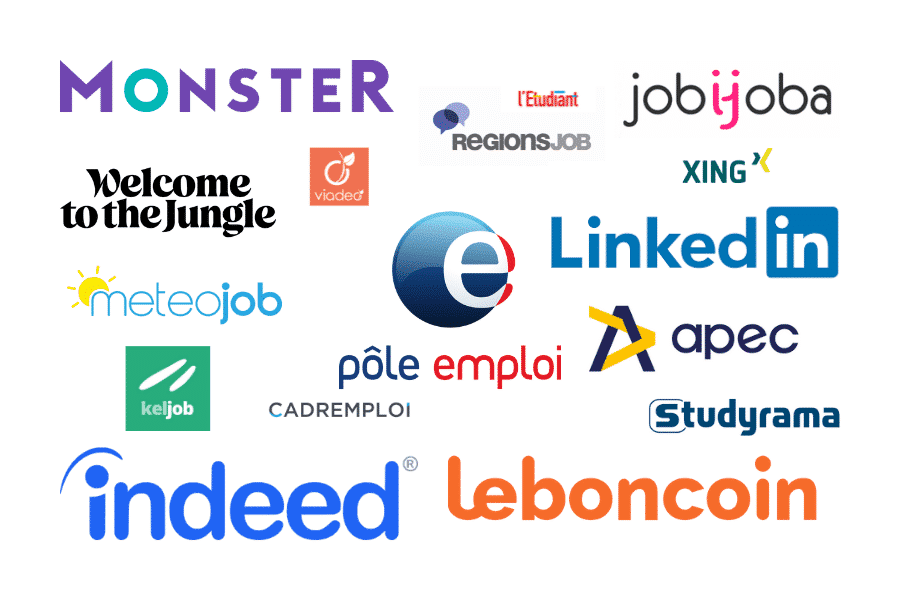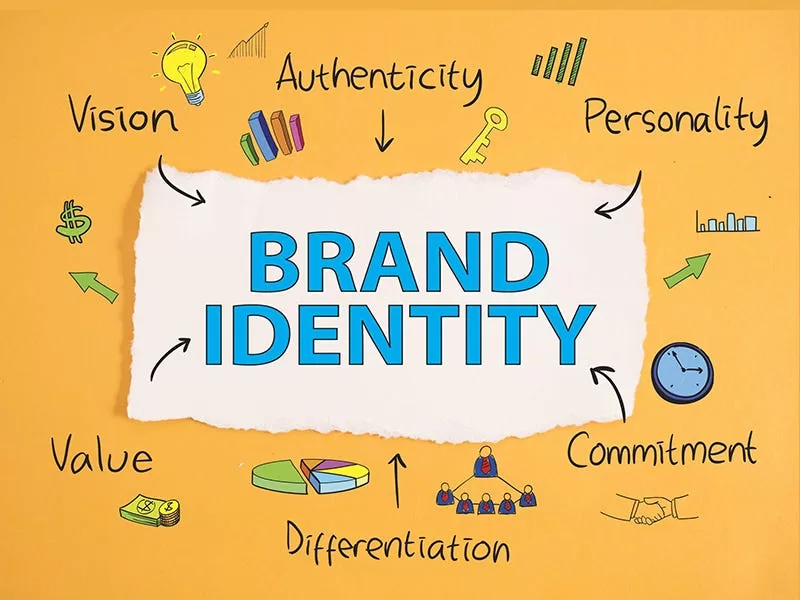
New clients, unlock 10% off all plans 🔥 at checkout with code: CEO10SPECIAL (Limited Time Offer)
New clients, unlock 10% off all plans 🔥 at checkout with code: CEO10SPECIAL (Limited Time Offer)






As we navigate the ever-evolving field of employment, it becomes imperative to distinguish between the paths that lead to dead ends and those that pave the way to success.
This article aims to be your compass, debunking the ten worst and best ways to look for a job.
Whether you’re a seasoned professional or embarking on your career journey, these insights will serve as a light, guiding you through the intricacies of the contemporary job search.
Brace yourself for a transformative exploration that will empower you to not only secure employment but to embark on a career trajectory that resonates with your aspirations.
1. Spray and Pray Applications

In the fast-paced world of job hunting, the approach of sending out a multitude of generic job applications with the hope that one will stick, often referred to as “Spray and Pray,” is a common misstep.
This method, though seemingly efficient, is a recipe for disappointment and missed opportunities.
Imagine a scenario where a candidate applies to dozens of jobs daily, using a one-size-fits-all resume and cover letter. While the quantity of applications may be impressive, the lack of customization means that the candidate’s unique skills and experiences are lost in the sea of generic submissions.
Recruiters and hiring managers are adept at recognizing applications that lack genuine interest in the specific role. They seek candidates who demonstrate a clear understanding of the company and its needs.
By taking the time to tailor applications, candidates not only showcase their suitability for the position but also convey a genuine interest in the organization.
A study by a leading HR firm found that candidates who tailor their applications are 40% more likely to advance to the interview stage compared to those who employ a generic approach.
In essence, the Spray and Pray method might seem like a time-saving strategy, but in the competitive job market, a targeted and personalized resume approach proves to be the key to unlocking doors and securing meaningful opportunities.
2. Ignoring Networking Opportunities
In the dynamic world of job hunting, neglecting the power of networking is a cardinal sin.
Imagine a scenario where your dream job is available, but you remain oblivious to it simply because you didn’t tap into your professional connections.
Networking is not just a formality; it is the secret gateway to a plethora of unadvertised opportunities.
Consider the story of Sarah, who, amidst her job search, attended a local industry event. Engaging in casual conversations led her to a senior professional who, impressed by her passion, referred her to an unposted vacancy in his company. This illustrates how a chance networking encounter can transform a job search.
Networking isn’t confined to formal events; it thrives in the digital realm too. Platforms like LinkedIn are virtual goldmines of connections waiting to be explored.
John, a software developer, landed his dream job through a LinkedIn connection who appreciated his open-source contributions.
Ignoring networking is akin to limiting your job search to a fraction of its potential. The professional relationships you cultivate can be the catalyst for unforeseen career advancements.
In the competitive job market, your next opportunity might be just one handshake or LinkedIn message away. See networking as a strategic tool, and watch how doors to new possibilities swing open.
3. Relying Solely on Online Job Boards

In today’s digital age, online job boards have become the go-to for job seekers, yet relying solely on them can be a strategic misstep.
These platforms, while convenient, often create a saturated pool of applicants, making it challenging for your resume to stand out.
To illustrate, imagine your resume lost among hundreds in a virtual sea; this scenario diminishes your chances of catching the employer’s eye.
Consider diversifying your approach. Instead of exclusively scrolling through job listings, actively engage with company websites and professional networks.
Many organizations prefer direct applications, and by bypassing the crowded job board route, you increase the likelihood of your application reaching the right hands.
A case in point is the success story of one of our clients Sammy, who, disillusioned with the limited responses from job boards, explored companies directly.
Through researching potential employers and reaching out to them directly, he not only landed a job that went unadvertised but also demonstrated his proactive approach—an attribute highly valued in the modern job market.
Always remember that while job boards have their place, a multifaceted strategy empowers you to tap into hidden opportunities and stand out in the competitive job landscape.
Find out: List of Top U.S. Recruiting Firms and Staffing Agencies
4. Neglecting Personal Branding
Overlooking the power of personal branding is akin to entering a battlefield without armor. Your personal brand is your professional identity, and neglecting its cultivation can hinder your career advancement.
Why does it matter? Employers often turn to the internet to research potential hires. A robust personal brand not only showcases your skills but also communicates your values and passion. It’s the digital handshake that lingers long after the interview.
Examples of Effective Personal Branding:
LinkedIn Powerhouses: Profiles that go beyond the standard resume format, incorporating multimedia elements, articles, and endorsements, stand out. Share success stories, industry insights, and engage with others in your field.
Consistent Online Presence: Maintaining a consistent brand across social media platforms reinforces your professional image. Share relevant content, contribute to discussions, and be a thought leader in your domain.
Blogging and Thought Leadership: Establishing a blog or contributing articles to industry publications can elevate your authority in the field. This not only showcases expertise but also demonstrates a commitment to staying informed.
Generally, personal branding isn’t self-promotion; it’s about curating a narrative that resonates with your professional goals.
In a world where impressions are often digital, your personal brand can be the key that unlocks doors to unexpected opportunities. Don’t let the oversight of personal branding be the weak link in your job search strategy.
5. Being Unprepared for Interviews

Embarking on a job interview without meticulous preparation is akin to setting sail without a compass.
It’s a cardinal sin that often leads to missed opportunities. Consider the anecdote of an aspiring marketer whose lack of research about the company’s recent campaigns left her stumbling through the interview. The interviewer, unimpressed, noted the disconnect between the candidate’s skills and the company’s ethos.
Interviews are not just assessments of qualifications; they are evaluations of a candidate’s commitment and enthusiasm.
A common pitfall is generic responses that sound rehearsed. Imagine John, an IT professional, who, unprepared, responded to technical questions with vague generalities. The result? The company questioned his actual expertise.
To avoid these pitfalls, candidates must delve deep into a company’s history, culture, and recent achievements. Understanding the industry trends and anticipating potential questions empowers candidates to respond with relevance and insight.
Furthermore, showcasing genuine interest in the company’s mission and values demonstrates a commitment beyond the job description.
In essence, an interview is a conversation, not an interrogation. Being unprepared robs candidates of the opportunity to engage authentically, leaving them stranded on the shores of missed possibilities.
In contrast, thorough preparation is the compass that guides candidates to navigate the interview seas with confidence and purpose.
Find out: The Art of Rewording: Enhancing Your Resume For More Interview Invitations
6. Crafting a Targeted Resume and Cover Letter

Crafting a targeted resume and cover letter is the cornerstone of a successful job search. Imagine your resume as a tailored outfit for a specific occasion – one size does not fit all.
Begin by meticulously examining the job description, identifying keywords, and tailoring your resume to showcase how your skills align with the employer’s needs.
For instance, if the job requires strong project management skills, emphasize your experience in successfully leading cross-functional teams to achieve project goals.
Your cover letter should complement your resume, not duplicate it. Use this space to tell a compelling story about your professional journey. Start with a captivating opening that reflects your enthusiasm for the role, such as sharing a relevant anecdote or expressing admiration for the company’s innovative approach.
Rather than merely listing qualifications, delve into specific achievements that demonstrate your impact. For example, instead of stating, “Managed a marketing campaign,” say, “Conceptualized and executed a targeted marketing campaign, resulting in a 30% increase in customer engagement.”
In essence, a targeted resume and cover letter are your personal marketing tools. Craft them with precision, emphasizing not only what you’ve done but how your unique skills and experiences make you the ideal candidate for the position. This tailored approach will undoubtedly make your application stand out in the competitive job market.
7. Active Networking
Networking isn’t just a formality; it’s a dynamic strategy that can open doors to unforeseen opportunities.
Beyond the exchange of business cards or LinkedIn connections, active networking involves cultivating genuine relationships.
Consider attending industry events not just as a spectator, but as an engaged participant. Connect with professionals, share insights, and actively listen to others’ experiences.
Harness the power of informational interviews. These one-on-one conversations go beyond the superficial, providing invaluable insights into a particular role or industry.
For instance, reaching out to a seasoned professional for coffee can unveil a wealth of knowledge about industry trends and potential job openings.
Virtual networking has also become a game-changer. Engaging in online forums, webinars, and professional groups allows for connections on a global scale. Platforms like LinkedIn offer a digital stage to showcase expertise and connect with like-minded professionals.
Remember, networking is a reciprocal endeavor. Offering assistance or insights to others can strengthen your connections. It’s not just about what you gain; it’s about the value you contribute to the professional community.
By actively participating in networking opportunities, you transform a routine practice into a powerful tool for career advancement. See the idea that every conversation is a potential gateway to new possibilities.
Find out: Clubhouse Networking: 5 Ways to do it Right for Jobseekers
8. Utilizing Social Media Effectively
Leveraging social media effectively has become a game-changer. Platforms like LinkedIn, Twitter, and even Instagram offer unique avenues to connect with potential employers and showcase professional prowess.
LinkedIn, the Professional Powerhouse: Unleash the full potential of LinkedIn by crafting a compelling profile. Share thought-provoking articles, engage in industry discussions, and connect with professionals in your field. Many job opportunities arise from connections within your network.
Tweet Your Way to Success: Twitter isn’t just for casual banter; it’s a powerful tool for job seekers. Follow industry leaders, participate in relevant conversations through insightful tweets, and demonstrate your knowledge. Employers often scout Twitter for candidates who stand out.
Visual Storytelling on Instagram: While often seen as a platform for personal snapshots, Instagram can be a visual resume. Showcase projects, highlight achievements, and use Stories to give a behind-the-scenes look at your professional journey. This creates a multidimensional image for potential employers.
With social media, strategic use goes beyond mere presence—it’s about engagement, thought leadership, and creating a digital narrative that sets you apart.
Harnessing these platforms effectively not only expand your professional network but also position yourself as a compelling candidate in the eyes of employers.
Find out: The Role of Social Media in Your Job Search: How to Use It to Your Advantage
9. Investing in Professional Development
Investing in professional development is the key to unlocking doors in today’s dynamic job market.
Consider it as a continuous journey rather than a destination. As industries evolve, so do the skills in demand. To stay ahead, commit to lifelong learning and acquiring new competencies.
For instance, if you’re in the tech industry, mastering emerging technologies like artificial intelligence or blockchain can significantly enhance your marketability.
Moreover, attending workshops, webinars, and industry conferences not only keeps you updated but also provides invaluable networking opportunities.
Networking within these settings can lead to unexpected job openings or collaborations.
Take the example of a security analyst, who, through attending a cybersecurity conference, not only gained insights into the latest trends but also connected with professionals that later facilitated his transition to a high-profile security analyst role.
Investing in education is another aspect. Pursuing relevant certifications or even advanced degrees can open doors to higher-paying positions.
The investment in a Data Science certification, for instance, pays off when you find yourself in the forefront of data-driven decision-making.
Remember, professional development is an ongoing strategy that not only enriches your skill set but also demonstrates to employers your commitment to staying at the forefront of your field. In a world where adaptability is crucial, those who invest in their growth often find themselves at the forefront of career opportunities.
10. Building a Personal Brand

Crafting a compelling personal brand is not just an option; it’s a necessity that can set you apart from the crowd.
Your personal brand is the narrative that defines you professionally, influencing how employers perceive your skills and character.
Unveiling Your Uniqueness
Building a personal brand involves showcasing your unique strengths and personality. Don’t shy away from expressing your authentic self—employers are not just hiring skills, but individuals with a distinct identity.
Beyond the Resume
Your personal brand extends beyond the confines of a traditional resume. Utilize platforms like LinkedIn to share your professional journey, accomplishments, and insights.
For instance, narrate how you overcame a challenge at work, providing a firsthand account of your problem-solving abilities.
Storytelling for Impact
Crafting a memorable personal brand involves effective storytelling. Share anecdotes that demonstrate your professional growth and lessons learned.
Narratives have a lasting impact, creating a connection that goes beyond a list of qualifications.
Example: Turning Challenges into Triumphs
Consider recounting a challenging project where your innovative approach led to success. By sharing this narrative, you not only demonstrate problem-solving skills but also exhibit resilience and strategic thinking.
Building a personal brand is not just self-promotion; it’s about creating a lasting impression that resonates with potential employers.
Accept your uniqueness, go beyond the resume, master the art of storytelling, and watch your personal brand become a powerful asset in your job search journey.
Final Thoughts
In conclusion, navigating the job market demands a strategic approach. Avoiding common pitfalls like generic applications and neglecting networking is crucial.
Craft targeted resumes, actively network, and strategically utilize social media for success.
Continuous learning and personal branding are vital.
At CEOMichaelHR Resume Writing Services, we understand the nuances of a competitive job search. Our expertly crafted resumes and personalized guidance empower you to stand out. Let us be your ally in securing not just a job but a fulfilling career. Your success story begins with strategic choices, and we are here to guide you every step of the way.
Share
Further Reading
*The names and logos of the companies referred to in this page are all trademarks of their respective holders. Unless specifically stated otherwise, such references are not intended to imply any affiliation or association with CEOMichaelHR.
Land interviews 3x faster while submitting fewer resumes
Copyright © 2023, ceomichaelhr.com.
All rights reserved.
Land interviews 3x faster while submitting fewer resumes
Copyright © 2023, ceomichaelhr.com.
All rights reserved.

Learn the same techniques our expert resume writers have used to get thousands of clients closer to their next job
Unlock expert resume tips, start landing multiple interviews!

Stay connected to receive powerful career insights, updates, and inspiration that’ll help you hit your 2023 career goals.